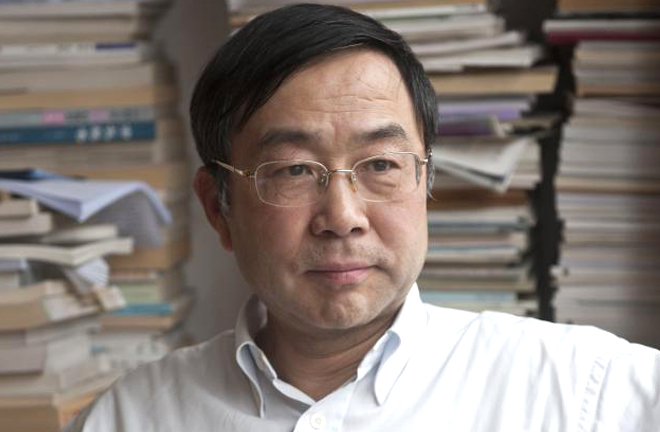ZHANG RULUN: Chinese philosophy must transcend tradition, address the times
 To evoke a greater presence in the field, just grasping humanity’s philosophical achievements is not enough for Chinese philosophy. It must center on the essence and basics of philosophy itself. The definitions of philosophy are many, but it is widely understood that the discipline reflects on humanity’s fundamental problems. It approaches humanity and the world from holistic views, of which other branches of the sciences are incapable. That is why though the impending doom of philosophy is so often declared, the discipline always refutes the claim by its own existence.
To evoke a greater presence in the field, just grasping humanity’s philosophical achievements is not enough for Chinese philosophy. It must center on the essence and basics of philosophy itself. The definitions of philosophy are many, but it is widely understood that the discipline reflects on humanity’s fundamental problems. It approaches humanity and the world from holistic views, of which other branches of the sciences are incapable. That is why though the impending doom of philosophy is so often declared, the discipline always refutes the claim by its own existence.
As for Chinese philosophy, it must approach the fundamental problems facing humanity today in its own way and propose a modern understanding of humanity and the world.
Chinese philosophers mostly aim to produce overviews of the universe and life in general. They rarely give priority to those crucial constituents of the universe and life, those important aspects, matters and links along with their interrelations and internal structures.
To a large extent, this results in generally empty philosophical systems, which are unsatisfactory in their theoretical connotation and strictness. In addition, people tend to be only interested in talking about certain big names and terminology. Such empty talk without substantive philosophical reflection will make it hard for Chinese philosophy to ascend in the world arena.
Chinese philosophy has its own tradition. But this does not mean that academics can only resort to traditional philosophical language and simply repeat or follow tradition. Repetition lacks philosophical soul; following lacks philosophical innovation. The right approach should be to bring forth the new on the basis of criticizing and sublating the old.
Some Western peers do a good job in regard to their attitude toward tradition. With criticism, they maintain an objective attitude toward the great figures in philosophical history, taking them as teachers—teachers that can be criticized and surpassed. Lectures on the History of Philosophy by Hegel is a typical example. It has been proven that some new “-isms” in the history of Western philosophy indeed have their own value, and some of them are of landmark significance, though there is still more original work to be done.
Partly due to insufficient criticism on tradition, it is difficult for Chinese philosophy to accomplish true originality. Criticism does not necessitate disrespect but aims ultimately to transcend. Marx’s criticism of Hegel’s philosophy is one such model.
It is also notable that traditional Chinese philosophy, especially Confucian philosophy, mainly focuses on ethical and moral issues, which limits its philosophical scope. Other major philosophical issues such as experience, language, being, realism, cognition, concept, time and space are not fully discussed in it. However, these issues are what have to be faced in pursuit of understanding humans, the world and their interrelation.
Chinese philosophy should not be a bygone philosophy. Modern Chinese philosophy cannot live eternally in the eras of Confucius, Zhu Xi or Wang Yangming. It should live in the era of global capitalism.
In an investigation into the issues posed by today’s era, Marxist philosophy cannot be dismissed. His philosophy has a direct correlation with the times, not in the chronological sense, but in the universal sense of history.
The world today is different from the world Marx lived in. Even a thinker like him with profound foresight and imagination could not fully foresee the changes that technology and capital have brought to the world today. Some of his unique conclusions may be open to discussion, but his philosophical methods and way of posing questions are what modern Chinese philosophy must incorporate as its basic elements. Only in this way can Chinese philosophy truly contribute its country’s wisdom and thought to today’s world, which is so fraught with risks and challenges.
Zhang Rulun is a professor from the School of Philosophy at Fudan University.
(edited by BAI LE)
